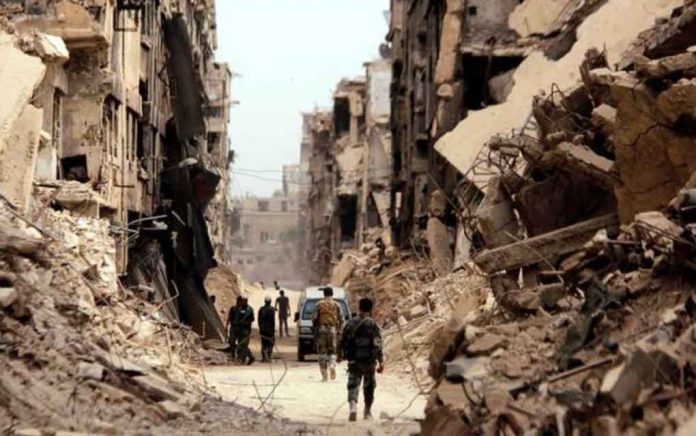It is the first such arrests in Europe against suspected figures in Syria’s feared security service
By Riham Alkousaa
BERLIN – (Reuters) – Police have detained two Syrians in Germany and one in France on suspicion of torture and other crimes against humanity, prosecutors said on Wednesday, the first such arrests in Europe against suspected figures in Syria’s feared security service.
Germany has “universal jurisdiction” laws that allow it to prosecute people for crimes against humanity committed anywhere in the world. Such crimes can be prosecuted in France if the suspect is resident there or a victim is French.
INTERVIEW-German arrest is first big catch for Syria investigators
“The significance of the arrests is that the trials are going to be the first time that torturers and victims are going to come face to face in a court of law,” said Mazen Darwish, a Syrian lawyer.
“Survivors of the systematic torture of civilians in Assad jails are going to give evidence against their executioners, and this is a first,” he said.
Federal prosecutors in Germany said that suspicions against the two who were arrested in Germany, which is home to more than 600,000 Syrians, included torturing prisoners during their work for the intelligence service.
The two suspects, identified as Anwar R., aged 56, and Eyad A., 42, were arrested by federal police in Berlin and Rhineland-Palatinate state.
As a high-ranking employee in the Syrian intelligence service, Anwar R. is strongly suspected of participating in crimes against humanity by torturing opposition activists between 2011 and 2012, prosecutors said in a statement.
“As head of the so-called investigative department, Anwar R. assigned and directed the operations in the prison, including the use of systematic and brutal torture,” said the statement.
The other Syrian is suspected of helping to kill two people and torturing at least 2,000 people as an intelligence worker between July 2011 and January 2012, it said. He is suspected of working in the department Anwar A. was directing.
The suspect in France was arrested on Tuesday near Paris on suspicion of committing torture, crimes against humanity and war crimes between 2011 and 2013, Paris prosecutors said.
They added the arrest was linked to an investigation opened in 2015 when French officials received testimony from a former Syrian officer and 55,000 photos of 11,000 victims that he was able to bring with him when he fled the country in 2013.
The cases involve far more detailed allegations than the only similar case, of a Syrian army officer sentenced to eight months in prison in Sweden in 2017 over photographs showing him posing over dead bodies, rights lawyer Anwar al-Bunni said.
ASYLUM APPLICANTS
Anwar R. has been in Germany since mid-2014 and Eyad A. since mid-2018, the prosecutor’s spokesman told Reuters, adding that both suspects had applied for asylum in Germany.
“It was a question of time that someone is identified and will be accused and later on arrested, most probably indicted and put on trial in Germany or another European country,” Wolfgang Kaleck, the head of European Centre for Constitutional and Human Rights (ECCHR) told Reuters.
Six torture survivors, some of whom live in Germany, have given testimony against one of the two detainees, Kaleck said.
The Syrian embassy in Berlin was not available for immediate comment.
Efforts to prosecute members of President Bashar al-Assad’s government have repeatedly failed, as Syria is not a signatory to the Rome Statute of the International Criminal Court (ICC) in The Hague. Russia and China have also vetoed attempts to give the ICC a mandate to set up a special tribunal for Syria.
“It’s a step forward but not more than that,” Kaleck said. “Let’s be clear, this is one of the most serious crimes against humanity in the last 100 years, so the arrest of those who were involved is important but should not be the end of the story.”
(Reporting by Riham Alkousaa and Joseph Nasr in Berlin, and Emmanuel Jarry and Leigh Thomas in Paris Additional reporting by Reuters TV Editing by Mark Heinrich, Gareth Jones and Peter Graff)







